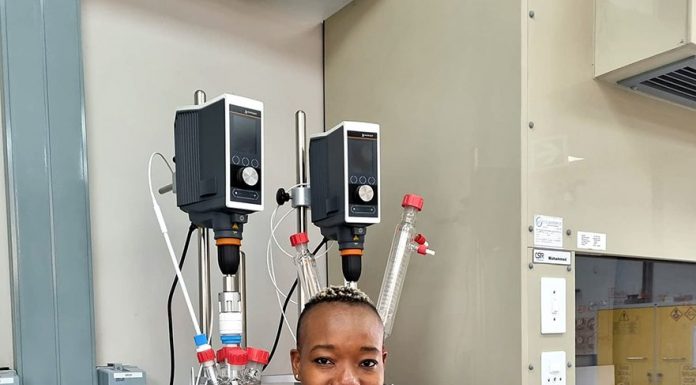With diabetes and breast cancer joining malaria as diseases that have taken a heavy toll on Africa, 37-year-old scientist Dr Bathabile Ramalapa is hard at work tailor-making drug delivery systems for the continent’s people and its unique climate.
As cases of diabetes increase even among children, says Ramalapa, insulin – which is the standard in the management of disease and requires cold storage from production until the moment it is injected by a patient – is a challenge to store and deliver in Africa with its warm climate.
Added to this is that it must be injected – another stumbling block that people with a fear of injections must overcome while also making sure that it is administered in the correct way. These are the problems.
Ramalapa, a senior researcher at the Council for Scientific and Industrial Research, is aiming to solve with her innovations in delivery systems.
“Insulin is unstable at room temperature. It has to be delivered at cold-storage temperature. Even patients themselves have to keep it in the fridge. It is taken by injection and because it is a [chronic] treatment, patients have to take it daily, therefore health professionals are not guaranteed that those who use it are injecting it correctly,” she said.
Ramalapa, who has PhDs in chemistry and pharmaceutical science, spends a lot of her time in the lab working on different formulations and liaising with other scientists at the CSIR’s main site in Pretoria, eville, west of Pretoria, says it has always been a dream of hers to wear a white coat and have “Dr” added to her name.
“I wanted to be a medical doctor. I didn’t know that there were different types of scientists. I was excited when I found out at a career fair that there are many other careers in healthcare. I got to hear about innovation in healthcare. That’s when I decided that I wanted to be involved in this kind of work.”
She studied for her bachelor’s and master’s degrees at the Tshwane University of Technology. “I’m not an exam person. I began to shine in my postgraduate studies,” she says.
“We cannot use one lens in education,” she says, “There are so many factors that are involved in getting an education in South Africa.
“There are students who are very smart but get to university and fail because they not only have to focus on getting good grades but on who will pay for their fees, where their next meal is going to come from, and whether their loved ones at home are OK,” she says.
Ramalapa says when she got an opportunity to study for a dual PhD programme in Europe, she grabbed it with both hands.
She left South Africa in 2013 and returned in 2017 with a PhD in pharmaceutical sciences from the University of Angers in France and another in chemical sciences from the University of Liege in Belgium.
Follow @SundayWorldZA on Twitter and @sundayworldza on Instagram, or like our Facebook Page, Sunday World, by clicking here for the latest breaking news in South Africa. To Subscribe to Sunday World, click here.




